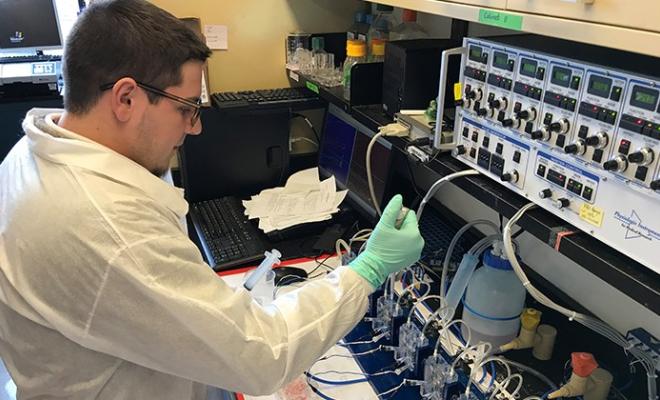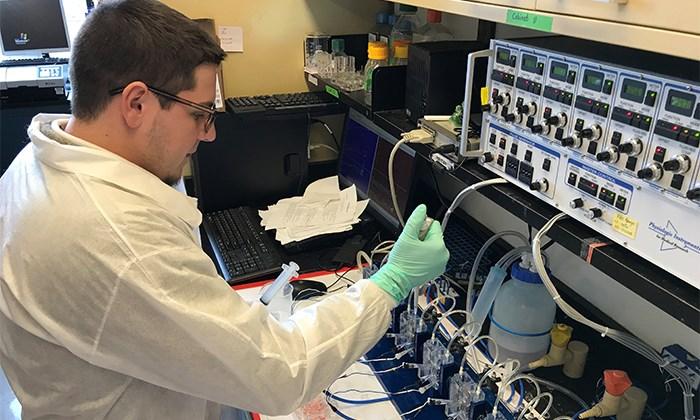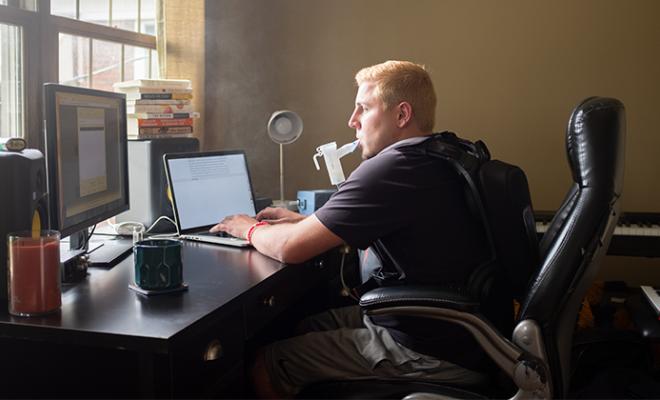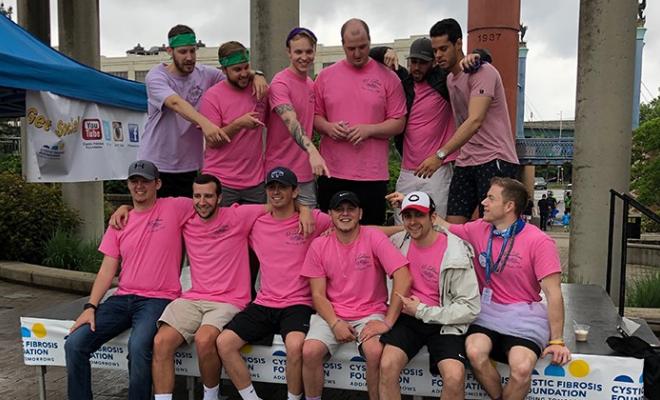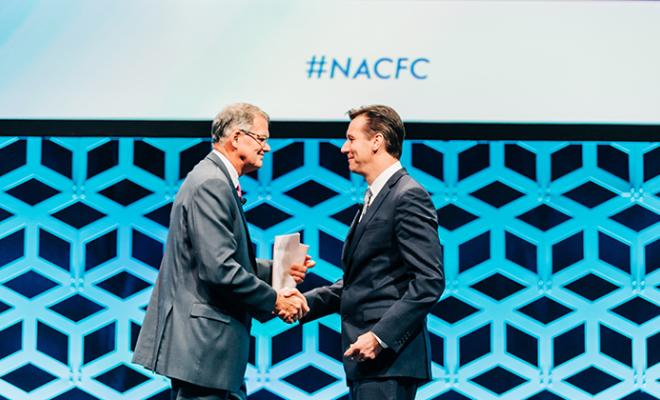One of my most sought-after goals has always been to make a positive contribution to the CF community. For the last year and three months, I feel confident that I've done just that by working in the research lab of Dr. J.P. Clancy at Cincinnati Children's Hospital. My education and experience in the lab has made my approach to my disease much more evidence-based and meticulous.
Our lab is trying to make precision CF medicine ubiquitous. We specifically want to determine, to the best of our ability, if the cells of people with less common mutations respond to compounds similar to the approved cystic fibrosis transmembrane conductance regulator (CFTR) modulators, Orkambi® and Kalydeco®. My role in the lab is to analyze and measure how their cells respond.
Our lab uses two model systems to corroborate which drugs will work best: “monolayers” and “spheroids.” Each model system is a good representation of how the body works, so it's important to use both systems because a patient's cells may work better in one than the other.
We are able to grow patients' cells into “monolayers” in laboratory flasks after we collect them by brushing the inside of their noses with a small wire brush. Working with an instrument called an Ussing chamber, we can measure if chloride channel transport is improved when we treat the cells with varying modulators.
In addition, we separately expand the cells into individual spheroids (or sphere-like shapes) and treat them with the same varying modulators. Both strategies are used to corroborate if a drug will work well for the patient's specific mutation. You can see which spheroids respond well to the modulators because the cells swell as they take in more chloride from outside the cell. I am actually witnessing the modulators improving CFTR protein function because the chloride transport is improved. It's both humbling and inspiring.
In my opinion, one of the most crucial aspects of CF care from a patient perspective is a feeling of personal control and responsibility. For CF care, it's of utmost importance to stick with our treatments, to exercise, and to be educated on our condition.
At the end of the day -- and sadly -- we only have some control over our disease progression. We can be sanitary and do all our treatments, yet a nasty infection can set us back more than we'd like.
But one part of CF care that is completely within our control is our understanding of the condition. Having some understanding of why things are necessary in our care can allow us that feeling of having control; to feel “normal” and responsible for our lives. That feeling of normalcy is what helps me stick to my treatments and have better mental health as well.
My education and lab experience have only furthered this belief in my mind. Our lab is partially funded by the Cystic Fibrosis Foundation, so our work is supported by the fundraising done by volunteers -- including my family and me -- over the last couple of decades. This part of the experience helps to confirm my passion for advocacy within the CF Foundation.
I strongly believe in the importance of doing what we can, as humans, to take matters into our own hands. As a person with a chronic disease, having a healthy mindset to deal with the unforeseen mental burdens of life with CF is important. Working in a CF lab has been one of the best experiences of my life because it gives me an insight into the intertwined workings of the scientific and clinical aspects of CF care.
It's also been a uniquely uplifting experience because I am able to provide the doctors and researchers in my lab an adult CF patient's perspective on life with CF. I am grateful for the opportunity to work in the lab, and I'm also grateful to be involved with the Greater Cincinnati Chapter of the CF Foundation, as these both help to give me the chance to feel fulfilled and contribute to the cause that's so near and dear to my heart.

